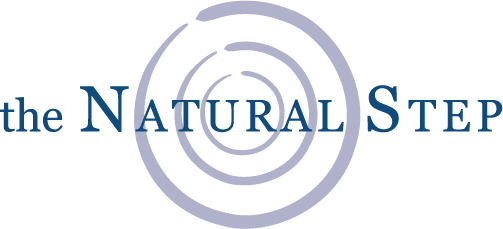The Key Question for a “Transformational Company”: What’s Left to Be Done?
The Key Question for a “Transformational Company”: What’s Left to Be Done?
 What makes a transformational or sustainable company? Versions of this question seem to be on a lot of people’s minds – from a recent call for feedback on this topic by Canadian Business for Social Responsibility to an article asking similar questions in last week’s CSRwire. The growing number of efforts to articulate an overarching vision for sustainable enterprises surely arises from our sense that despite our collective best efforts in recent years and the real progress being made, the sustainable business movement is still not affecting systemic change toward sustainability as fast as we would like it to.
What makes a transformational or sustainable company? Versions of this question seem to be on a lot of people’s minds – from a recent call for feedback on this topic by Canadian Business for Social Responsibility to an article asking similar questions in last week’s CSRwire. The growing number of efforts to articulate an overarching vision for sustainable enterprises surely arises from our sense that despite our collective best efforts in recent years and the real progress being made, the sustainable business movement is still not affecting systemic change toward sustainability as fast as we would like it to.
Sustainability author and Natural Step Canada Board member Bob Willard has phrased the question another way - “how would we know a sustainable enterprise if we saw one?”
My experience tells me that this is a question worth asking, because the companies that capture the most value from their sustainability efforts – the truly transformational companies – are extremely clear about what they are transforming towards. Being clear about what sustainability requires of your business – and therefore being ambitious in your goal-setting – is critical to moving beyond incremental changes that still feel like costs to instead achieving the kinds of breakthroughs where real value lies.
The difference can be spotted almost instantly. Does a company’s narrative about their sustainability journey focus mostly on what they have done? Or does it emphasize what’s left to be done?
Three years ago, The Natural Step Canada re-oriented our advisory service offering for businesses to focus on assisting companies that sought to capture business value through sustainability-driven transformational change. We have been very fortunate to work with businesses like the Landmark Group of Builders, The Co-operators, and ISL Engineering and Land Services, that recognize the need for and opportunity in a deep, authentic commitment to transformation. In so doing, we have experienced what it takes for such transformation to happen. It doesn’t just happen through nice words, good indicators, best practices or even strong leadership. It takes special attention to the social processes that foster creativity, hope, and ambition in this work. Getting people to interact with different people and in different ways than they usually do in carefully designed processes that respect the way adults learn is vitally important for the work to be enduring and the change to be transformational.
The Natural Step Canada has also long observed that the many efforts to rate and rank sustainable businesses have largely focused on evaluating businesses through a “rear-view” mirror – i.e. evaluating relative to past “unsustainable” performance and/or relative to competitors. It’s the kind of approach that leads to confusing situations like Enbridge Inc. being delisted from Vancity Credit Union’s socially responsible investments in the same year that it was named one of the Global 100 Most Sustainable Companies in the world. What distinguishes some of the true leaders in the sustainable business movement, though, is their ability to articulate a sustainable vision for their business and to monitor performance relative to that vision – i.e. “how much closer to sustainability are we getting through our performance improvements?” Our feeling has been that rating and ranking efforts could accelerate the sustainable business movement immensely if they could only find a way to orient their rankings more similarly.
Enter B Corps - a rapidly growing community of businesses that aim to use the power of business to solve social and environmental problems and in so doing, redefine success in business. The B Corp approach to certification is helping to create standards that allow “impact investors” to drive capital to these businesses and help them to grow. Nine U.S. states, including New York and California, have already passed laws to create the appropriate legal infrastructure to support them. The B Corp movement is just one among many exciting developments in this space, and it is one we are following closely. The Natural Step Canada has recently initiated collaboration with a group of partners to support this movement by reviewing the B Corp certification system through a Natural Step lens and then engaging a range of stakeholders in dialogue about what such a standard might mean for them. Our shared view is that the more rigorous such standards are in describing a truly sustainable outcome, the more they will help companies understand and communicate what’s left to be done.
What’s left to be done? It’s the key question for any company seeking to capture value from being a leader in sustainability. It’s also the key question for our movement as a whole.
If you are interested in learning more about our Service Path for Sustainable Business and how we can help your business develop a bold sustainability vision, strategy, and action plan, please contact us or join our next FREE Introduction to Strategic Sustainability for Business in Canada webinar.

